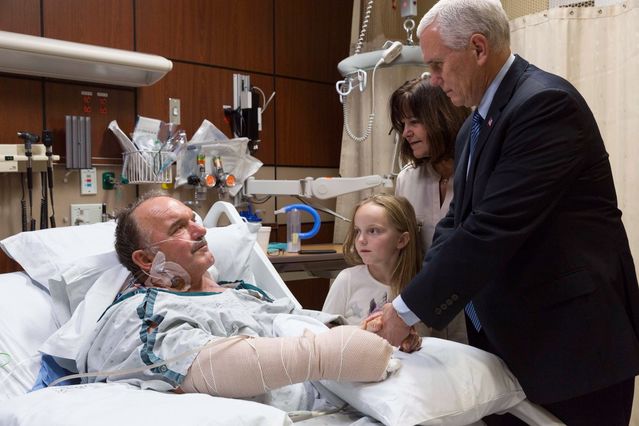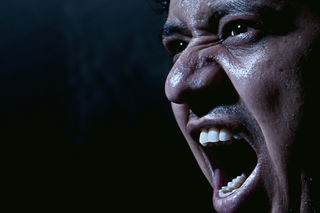Embarrassment
Two Common Myths Around Mass Shootings in America
What you should know about small towns and good guys with guns.
Posted November 14, 2017
In the wake of the latest mass shooting in America—this time at a small, country church in Sutherland Springs, Texas, just outside of San Antonio—Americans find themselves once again wondering what, if anything, can be done to prevent such horrific events from happening, and whether or not our nation’s leaders will have the insight and courage to do whatever can be done. Having conducted research on culture and violence for the last decade, I thought I would take a few moments to explode a few myths that I keep hearing in various forms as I listen to people discuss Sutherland Springs and other such events all-too-common events.

Myth #1: “These sorts of things shouldn’t happen in our little town.”
People seem to expect gun-related violence in Chicago or Atlanta, but when a mass shooting occurs in a small town, people seem truly surprised. To be clear, mass shootings should not occur anywhere in a civilized nation. But if they are going to occur, small towns are exactly where we should expect them.
The reason behind this claim comes from what we know about honor cultures. Honor cultures are societies that put excessive emphasis on the defense of reputation (one’s own, one’s family’s, one’s community’s). In an honor culture, men strive to be known as tough and brave, the kind of person who will never tolerate disrespect, and they feel compelled to do just about anything to protect their reputations, even to the point of violence. Retribution for a threat to honor is not simply allowed in such cultures. It is expected.

To lose honor in an honor culture—the likes of which are found in many parts of the world and throughout the southern and western regions of the United States—can be devastating and result in the indefinite suspension of social status. Consequently, people in honor-oriented communities will go to great lengths to protect their reputations. This willingness to do whatever it takes to protect or restore one’s honor helps to explain a variety of extreme statistics associated with honor cultures, including higher rates of argument-based homicides, excessive and deadly risk-taking, domestic abuse by men (often precipitated by suspicion of a woman’s unfaithfulness or her threats to leave him), and even suicide (presumably the last option for someone who fails to maintain or restore their honor).
Several years ago, my collaborators and I found that regions of the United States that have been shown to adhere more tightly to this ethic of honor (generally, states in the South and West) also have more instances of school shootings—three times more, in fact! Other studies of school shootings have suggested that they are typically precipitated by chronic or acute bullying, humiliation, or romantic rejections—the very sorts of threats to a reputation that people in honor-oriented communities seem intensely susceptible to. Furthermore, a reputation threat is one thing when you live in a large city, where it’s relatively easy to hide. But it’s quite another when you live in a small community, where everyone knows you. Consequently, research by social psychologist Richard Nisbett and his colleagues has demonstrated the “small town effect,” in which the retaliatory demands of honor are enhanced in smaller communities.
Myth #2: "The only thing that will stop a bad guy with a gun is a good guy with a gun.”
In the shadow of the Sandy Hook massacre, in which a young man entered an elementary school and opened fire on innocent school children, there were calls from lawmakers all around the country to start arming public school teachers. That way, the thinking went, if someone ever wanted to shoot up an Oklahoma school, he would face a well-armed militia wherever he went.

That turns out to be a terrible idea unworthy of serious consideration, as it depends upon one of the great myths of modern American discourse on gun control: the myth of “the good guy with a gun.” Unfortunately, some states have passed laws allowing designated teachers to carry concealed weapons after a few hours of gun safety training—far less training than is received by police officers who, nonetheless, prove themselves to be horrendously inaccurate under the intense pressure of an active shooter situation. “Good guys with guns” who are not highly trained police officers are likely to do far more harm than good in such situations.
Ironically, in last weekend’s shooting in Sutherland Springs, Texas, it was just such a “good guy with a gun” who disrupted the church shooter and caused him to flee the scene, eventually taking his own life. As a consequence of his heroism, I’m sure that many people will once again argue for increasing the prevalence of guns in order to prevent or disrupt mass shootings. The Sutherland Springs shooting will be the poster-child for this argument for years to come, the shining anecdote that gun rights advocates will invoke to counter any appeal to restrict access to automatic weapons capable of creating mass casualties in a matter of moments.
Despite the occasional success story in support of this notion, though, it is worth underscoring one of the key problems with this argument: even if putting guns into the hands of more Americans could cut short some mass shootings, having a heavily armed populace is likely to dramatically increase the number of deadly shootings that don’t make headlines. These are the shootings that people without a history of mental health problems or prior arrests for violence are prone to engage in for reasons having little to do with being a “bad guy” and everything to do with the schemas and scripts that lie at the heart of honor cultures.
If we understand honor-oriented motives and beliefs, and if we realize that “good guys with guns” who endorse the values typical of honor cultures are much more likely to find themselves in situations in which their honor has been severely threatened than they are to find themselves facing an active shooter situation, then we simply have to do the math. Is the statistically unlikely possibility of successfully disrupting a massacre by arming more “good guys” worth the costs of giving more people the tools to easily kill someone who has threatened their honor? Considering the fact that every year in America, more people die from accidental gun discharges than have died in all school shootings throughout American history, does it really make any sense to think that arming more people will help to make our country safer?




